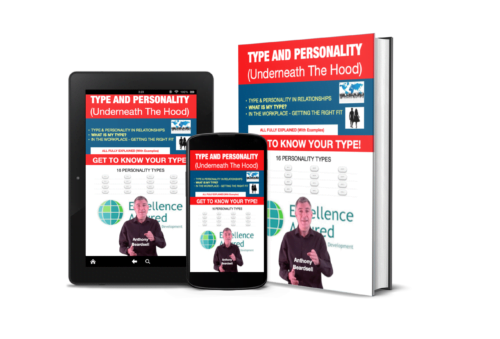NLP Representational Systems test
Take the quiz at the bottom of this page.
Discover your preferred way of thinking and interpreting the world – your preferred Representational System.
Before we go into the quiz below where you can discover your own preferred system we’d like to explain a little about representational systems and their importance.
We each have a preferred way of representing the world to ourselves, a preferred representational system. By understanding your preferred system you can:
- Get better learning outcomes
- Set better and more compelling goals
- Design work tasks to suit your preference and therefore improve your performance
By understanding other peoples preferred system you can:
- Communicate with them on their level – resonate with their thinking
- Motivate them better
- Be in a better position to influence and persuade them
- Help them work through their problems more effectively
What is a Preferred Representational System?
As you get to know yourself better you may have noticed that the things that you do and the things that occupy your thoughts occur largely involuntarily. This is down to the mysterious world of the unconscious or subconscious.
One of the aspects that is governed by our unconscious is our preferred sensory system. That is: 1) do we prefer to interpret the world (re-present the world to ourselves) through our visual sense, through pictures, sights, using our eyes?
2) do we prefer to interpret the world through our kinaesthetic sense, touching, through feelings?
3) do we prefer to interpret the world through our auditory sense, hearing, through sounds?
4) do we have a preference for a more digital interpretation of the world, through logic, self talk, making sense of everything?
The chances are that you do have a preference for using one sense or sensory system over another and yet you may not be aware of it….consciously. This is your preferred representational system.
Our representational systems (re-presenting the world to us)
You will notice that we call it a “preferred system”. We each have internal systems for each sensory aspect, visual, auditory, kinaesthetic, gustatory, olfactory. These systems allow us to assess what we are experiencing in the world through our senses in the moment and also allow us to create and recreate memories of what we have experienced in the past and thoughts of what we may expect to experience in the future.
We process external data
We each have the ability to process external visual data, through our eyes, auditory data through our ears, kinaesthetic data (including tastes and smells) through our skin, and through our mouth and nose.
We process internal data
We each also are able to create and recreate sights, pictures (and movies), sounds and feelings internally based on data that we have stored from experiences in the past.
- Providing an insight into our thinking
- We can all do all of these things (assuming that our senses work ok) and we will have developed a preference for using one system over another.
- What is important is that our preferred system will provide insights into how we think and how we process information.
Example:
I use the word “insight” above. Which sensory system do you think that the word “insight” belongs to? It is a visual word, in-sight. This implies that whilst creating these words I am thinking about the visual aspect of our thoughts ie the pictures that we create internally. If someone has a preference for their visual system, then they will predominantly be thinking in terms of pictures and images. This makes sense to me because I have a visual preference.
If I had said “…will enable us to get in touch with how we (and others) think”, then I would have been using my kinaesthetic system. “Touch” is a kinaesthetic word. Got it? Good.
By listening to the words that people use, by watching their eye patterns, by observing their body language you can discover your own and other peoples likely preferred representational system without the need for this quiz or test. This is a skill that we teach in our NLP training.
How does know this benefit us?
When developing a new skill do you think that it would be useful to know which is your preferred system?
Developing new skills – Would you like to see how the skill works? Do you want to hear about it first? Do you prefer to practice it? We will develop a new skill most effectively and quickly by aligning our development with our preferred system.
Communicating with others – When you communicate with others do you prefer to see them face to face? Are you happier speaking to them over the phone? Do you prefer to meet them and interact with them?
When you buy a product – do you need to see it working? See how it looks? Hear about it from others? Listen to recommendations? Play with it? Get a feel for it first?
Hopefully this is resonating (auditory) with you now. Hopefully you can see (visual) how this might be useful. Hopefully you are getting a feel for how this could work for you?
Take the 5 minute quiz to discover your preferred representational system.
You may also be interested in Anthony’s new book
For each of the following statements, please choose your preferred response. If you have trouble between two phrases, go with the first thought that comes to mind.
FREE NLP Representational Systems test – Quiz below
Remember, you will have a preferred system and will also use the other systems as well. You may even have two similarly preferred systems. Take an NLP training course with us to learn more about Representational Systems, better understand your own preferences and learn how to use them to help you and others with their communication.


